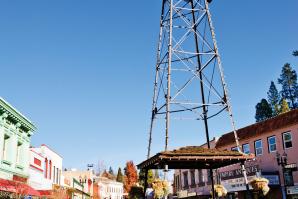At a time of extreme economic stress, our state government has taken aim at one of the few resources communities have to repair their bruised economies — local redevelopment funds.
For the second time in two years, the Legislature is trying to raid these funds to help balance the state budget. Courts declared the first raid unconstitutional last April. By tinkering with the language in the current bill, lawmakers hope to circumvent the constitution, which clearly states redevelopment funds should only be used to finance specific redevelopment activities.
The state now wants to steal $2.05 billion — $1.7 billion this year, and another $350 million next year. The funds would help finance schools, thus reducing the state’s budget obligations.
If the state siphons more than $2 billion, individual cities will lose a significant portion of the dollars they would otherwise use to build their fragile economies. In our region alone, the city of Sacramento stands to lose $16.8 million, Vacaville $9.5 million, Folsom $2.7 million and Roseville $2.3 million.
Here we have another example of California’s dysfunctional budget system. State leaders don’t have the political courage to make tough budget cuts. Yes, our schools need financing but not at the expense of our cities.
Since lawmakers enacted redevelopment legislation in 1945, communities statewide have used these funds to rebuild deteriorated areas: cleaning up contaminated property, improving streets and lighting and launching affordable housing projects.
In the process, redevelopment agencies make it economically attractive for the private sector to step in and complete the work of revitalizing neighborhoods and business districts — exactly as the law intended.
Such redevelopment supports jobs — an estimated 300,000 new full- and part-time positions in 2006-2007. Redevelopment agencies fund more affordable housing in California than any entity besides the federal government. It promotes local economies: Every $1 in redevelopment agency spending is estimated to generate about $13 in total economic activity.
By the way, redevelopment also pays its own way. As improvements are made, property values and property tax revenues rise. Redevelopment agencies get a portion of this increase to repay debt they’ve incurred to initiate development.
But city redevelopment agencies are fighting back. The California Redevelopment Association filed a suit in October, asking courts to again declare the state in violation of the constitution. Because courts might not rule by May, when the first payments are due to the state, local redevelopment agencies are already planning the reductions in staff and projects that will allow them to meet the state’s demands.
With more than 12 percent of California’s workers unemployed and no relief in sight, this state action is undercutting one of the state’s most productive engines for job creation and economic development. Why would state lawmakers even consider it?
Some critics say it’s an example of legislators failing to appreciate the unintended consequences of their actions. Others see it as a cynical maneuver by lawmakers to make a pitiful budget look better, while they fully expect the courts to strike down its actions.
Whatever the reason, this attempted raid on redevelopment funds is outrageous. It’s bad policy and bad economics. It should be stopped by the courts and serve as a powerful reminder of just how urgently we need state budget reforms.
Recommended For You

Due or Die
Redevelopment agencies are ransoming their projects
If Gov. Jerry Brown had his way, the redevelopment agencies throughout California would be history. Not only would he demolish all of the nearly 400 active agencies, Brown would also use the billions they earn in property taxes to plug the state’s massive deficit and support schools and public safety services.

Up & Down Main Street
Small town realities and the long road to prosperity
Say what you will about the severity of state and federal budget woes, but it’s arguably the small towns that are bearing the real brunt of today’s economy.


